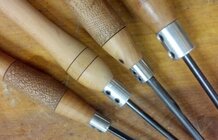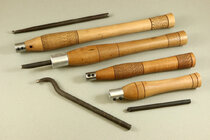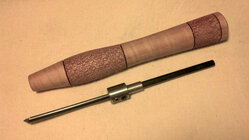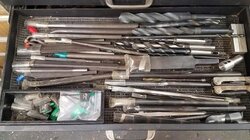Is anyone, has anyone, bought Jerry Glaser turning tools in recent times? Bringing him up in the recent TiN coating thread, I was curious about the brand in recent times. Jerry passed away in 2013.
I never followed his brand, I had no interest, nor the budget for them. I don't know what Jerry's company makeup was back then, but today...
I looked up Jerry Glaser turning tools, and here is the About Us from the website-
And the same from the parent company, located at the same physical address-
From Glaser-
"Our products are manufactured by Advanced Theoretical Concepts, a leader in the development and engineering of precision components for the US Military, aerospace and Deep Space Exploration."
And woodturning tools. Sure, why not? Everyone, even a corporation, should have a hobby.
So, anyone dropping $200-300 apiece for Glaser tools nowadays?
I never followed his brand, I had no interest, nor the budget for them. I don't know what Jerry's company makeup was back then, but today...
I looked up Jerry Glaser turning tools, and here is the About Us from the website-
And the same from the parent company, located at the same physical address-
From Glaser-
"Our products are manufactured by Advanced Theoretical Concepts, a leader in the development and engineering of precision components for the US Military, aerospace and Deep Space Exploration."
And woodturning tools. Sure, why not? Everyone, even a corporation, should have a hobby.
So, anyone dropping $200-300 apiece for Glaser tools nowadays?


%20Elliptical%20Bowl%20Gouge%20Blad-d378f3a.jpg/:/rs=w:1200,h:1200)








